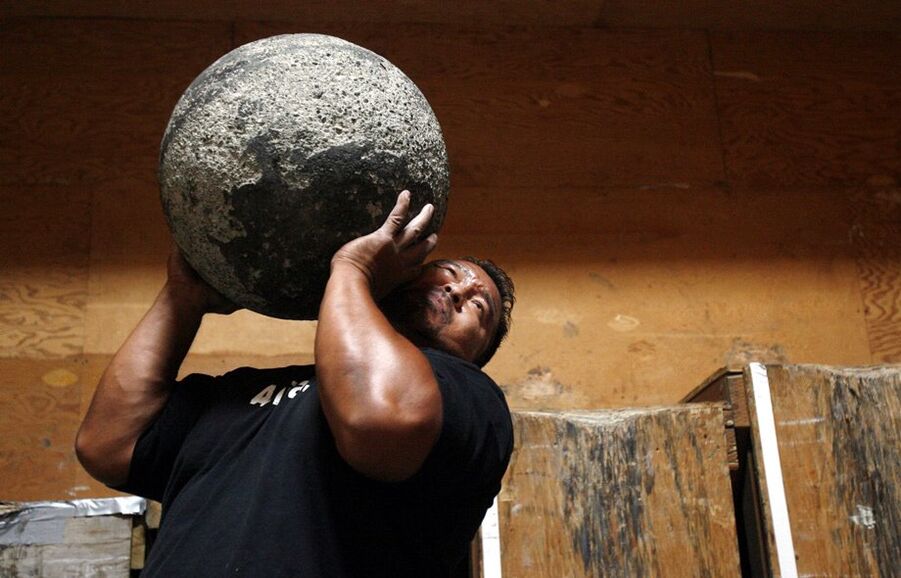Prostatitis and hemorrhoids are the most common diseases in men over 40 years of age. Moreover, in some cases, the two pathologies can develop in parallel, greatly affecting the quality of human life. Here you need to think about what these two diseases are and what symptoms are shown to be able to identify the problem independently and consult a specialist in a timely manner.
What are hemorrhoids: characteristics and symptoms

Hemorrhoids are veins that grow in the rectum. These veins are called hemorrhoids and form nodules when they expand.
The main cause of the development of this disease is a violation of the outflow of blood from the lower rectum. This is due to various reasons:
- sedentary lifestyle;
- overweight;
- frequent constipation;
- excessive load;
- inflammation of the rectum.
In other words, blood flows to the area of the hemorrhoid, but its outflow is interrupted, so it overflows the vein, which expands. Due to the expansion of the veins, there are changes in the tissue of the corpora cavernosa located beneath the mucous membrane of the rectum. These parts swell and grow in size, forming what are called hemorrhoids.
Nodes can be internal or external. The external node is the result of weakness of the sphincter muscles, as a result of which the internal node is displaced and falls out of the anus. The number of internal or external formations in the rectum can vary, from one to several nodes. Moreover, the more nodes, the worse the symptoms of the disease.
Hemorrhoids are most often chronic, with periodic worsening.
The disease develops slowly, symptoms remain invisible for a long time, which explains the main problem of hemorrhoids - late diagnosis. In the early stages, the symptoms are mild:
- slight edema of the lower rectal tissue;
- periodic itching in the anus;
- burning pain and pain after defecation.
Symptoms get worse with constipation - there is severe and stinging pain when passing stools. At the same time, mucus can be removed from the rectum, which further irritates the mucous membranes, increasing the burning sensation.
Obvious hemorrhoids are indicated by inflammation of the nodes. This is accompanied by incredible pain. Nodes are damaged during bowel movements, so blood is found in the stool.
Over time, the body of the rectal cave can become severely deformed, as a result, the nodes fall off, and they should be properly fitted in the anus with your fingers.
Basic concepts about prostatitis

Prostatitis is an inflammation of the prostate gland. The disease is contagious and non -contagious, can occur in acute and chronic forms.
If we consider prostatitis and hemorrhoids simultaneously, attention should be paid specifically to the non -infectious chronic inflammatory processes in the prostate gland. This disease is often called congestive prostatitis.
The essence of the problem lies in the violation of the trophism of the prostate gland. Trophism is understood as the microcirculation of blood and the outflow of lymph. The deterioration of this process led to the following changes:
- secretion of stagnant prostate gland;
- swollen organs;
- secretions in the prostate thicken;
- the inflammatory process develops.
The result of a violation of trophism is a swollen and enlarged prostate, which compresses the tissues and organs around it (bladder neck, lower part of the urethra), as a result of which obvious symptoms of prostatitis develop.
The main causes of congestive prostatitis are:
- sedentary lifestyle;
- lack of regular sex;
- overweight;
- bad habits;
- unbalanced diet.
As a rule, especially men over the age of 40 suffer from this disease.
Doctors often call congestive prostatitis an "office worker disease, " thus emphasizing the link between prostate trophism violations and an inactive lifestyle.
The symptoms of the disease are as follows:
- frequent desire to use the toilet;
- pain in the perineum, rectum, bladder;
- impair the flow of urine when urinating;
- the feeling of a bladder that is always full;
- ejaculatory disorders;
- decline in potential.
Ejaculatory disorders are manifested either by rapid ejaculation with short -term stimulation of the penis, or the inability to reach orgasm during intercourse. The first is associated with an increase in the tone of the prostate, the second - with a violation of organ contraction.
What connects prostatitis and hemorrhoids?

The link between prostatitis and hemorrhoids is clear - a common cause of development. And in one, and in another case, the disease develops as a result of impaired blood circulation and lymph flow. In this case, prostatitis causes thickening of the juice in the prostate due to violation of trophism, and hemorrhoids are caused by violation of the outflow of blood from the rectum.
The following reasons led to the violation:
- sedentary lifestyle (sedentary work);
- lack of regular sex;
- obesiti;
- bad habits.
Most modern people work in offices, that is, they spend most of their time sitting. In the conditions of modern life, few people are able to find ample time for recreation and active sports, and most days are spent in a sitting position. The result is poor circulation in the pelvis and lower legs. If at the same time a man has problems with leg veins, problems with pelvic organs are just waiting for time. As a rule, varicose veins are also found in the age group of people at risk of getting prostatitis.
It seems that a lack of regular sex will only affect the prostate, but what does hemorrhoids have to do with it? This is exactly what happens when the two diseases are linked, and the development of congestive prostatitis requires the expansion of the hemorrhoidal veins. A bad sex life negatively affects the function of the prostate gland. As a result, congestion develops and symptoms of prostatitis appear. The enlarged prostate presses on surrounding tissues, including blood vessels, interfering with normal blood flow in the area. As a result, the rate of blood flow to the rectal veins changes, venous stasis gradually develops, the veins expand and hemorrhoids form. Of course, this process stretches for years, but if nothing is done, prostatitis will eventually result in hemorrhoids.
The same thing happens with obesity. The tropism of the pelvic organs is violated, and then either prostatitis or hemorrhoids develop. If the man does not respond in any way to the presence of one of these diseases, the development of the latter should be expected over time.
The negative effects of bad habits should be considered separately. The most common addictions are smoking and alcohol abuse. Nicotine has a negative effect on blood vessels, increasing their tone. As a result, they narrow, which negatively affects the rate of blood flow. Another factor is the disruption of oxygen transport to tissues during prolonged smoking. The result is again poor circulation in the pelvic organs and lower legs, leading to congestion, prostatitis or hemorrhoids.
Alcohol abuse has a negative impact on the function of the nervous and cardiovascular systems. An increase in blood pressure is often observed, which is the cause of impaired blood flow. Thus, smoking and systematic alcohol consumption are direct pathways to the development of prostatitis and hemorrhoids.
As a rule, one of these diseases develops under the influence of several factors at once. Over time, the congestion spreads to all pelvic organs, leading to the development of a second disease.
Having found out whether hemorrhoids are associated with prostatitis, you should know that the two diseases can develop in parallel. The presence of two such diagnoses complicates treatment, so you should immediately see a doctor.
Treatment of hemorrhoids and prostatitis
If both diseases have worsened, they need to be treated at the same time. In general, the treatment of these two diseases is somewhat overlapping, so taking medication will be able to stop the severity.
In the treatment of prostatitis, rectal tablets and suppositories are used. For the treatment of hemorrhoids, rectal suppositories are also used, therapy is supplemented with microclysters.
Suppositories
Preference is given to mild anti-inflammatory drugs. They simultaneously stop inflammation in the prostate and reduce the manifestations of hemorrhoids.
In addition, methyluracil suppositories may be recommended to enhance local metabolic processes and strengthen immunity. Suppositories with ichthyol in the composition are often prescribed as anti-inflammatory agents.
Microclysters to relieve inflammation
Microclysters are used to stop the inflammatory response and as an intestinal preparation prior to rectal suppository administration. At home, an enema is made with a decoction of anti -inflammatory herbs - chamomile, St. John's wort. John, calendula.
Physiotherapy and exercise therapy
Physiotherapy is prescribed only after relief of acute symptoms. It aims to increase blood circulation in the pelvic organs and can reduce the frequency of exacerbations. In the treatment of prostatitis, electrostimulation, magnetotherapy, and laser therapy are used.
Since access to the prostate is carried out through the rectum, such a procedure has a positive effect on anal health.
Exercise therapy is prescribed to all men who are dealing with the process of stagnation in the pelvic organs. Exercise stimulates local circulation and lymphatic drainage. They can be done at the clinic or at home. In addition, it is useful for men to exercise, swim, yoga, run at a moderate pace indicated.
Prostate massage for hemorrhoids
Prostate massage is the best remedy for the treatment of congestive prostatitis, which is strictly contraindicated for inflammation of hemorrhoids against the background of exacerbation of hemorrhoids. The course of the procedure should be delayed until the inflammation in the nodes is stopped. Otherwise, during the massage, the hemorrhoids can be damaged, which leads to excessive bleeding and can lead to the spread of inflammatory processes or even infection at the site.
Preventive measures

Prevention of hemorrhoids and prostatitis aims to increase the remission period and reduce the frequency of exacerbations. Precautions:
- balanced diet;
- prevention of constipation;
- strengthens the immune system;
- Play sports;
- ordinary sex life;
- rejection of bad habits.
It is important to organize the diet in such a way as to prevent the development of constipation. Constipation is one of the main factors in the exacerbation of hemorrhoids and prostatitis, as it affects blood circulation. During bowel movements, hard stools injure the rectum and hemorrhoids, cause severity, and irritate the prostate, which is hidden by a thin septum. To prevent constipation, your doctor may also recommend special medications, such as glycerin suppositories.
























